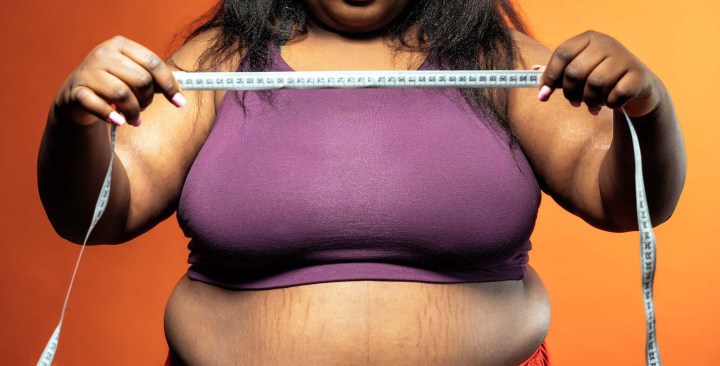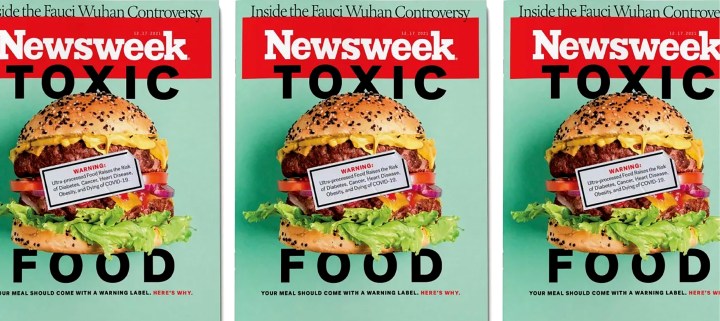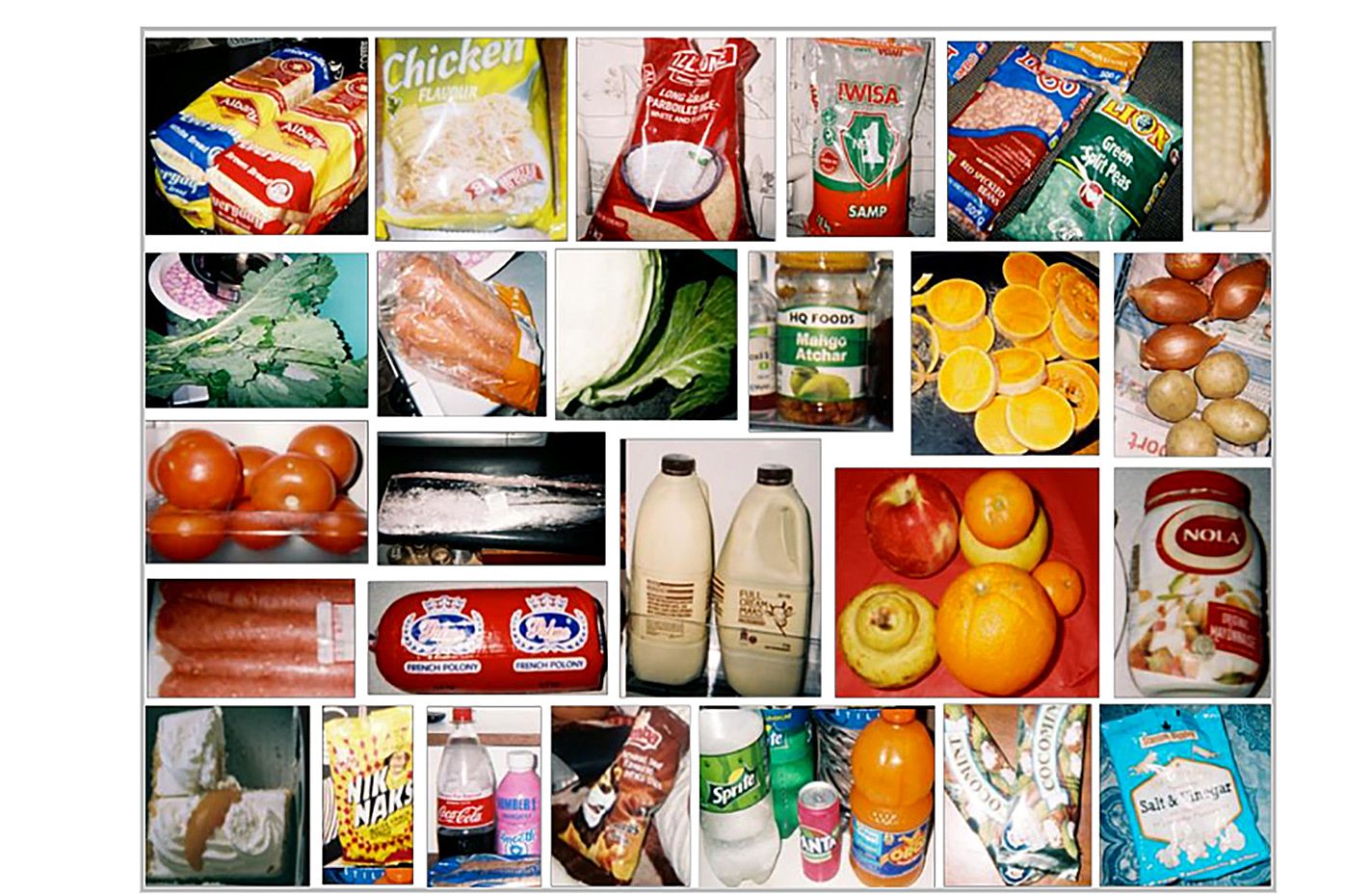
‘It’s everywhere,” wrote Dr Chris van Tulleken in the Daily Mail in July 2021, “the sandwich you buy for lunch, the sausages you cook for your kids, frozen pizza, almost all breakfast cereals, almost all snacks, even the ‘healthy’ stuff labelled ‘low sugar’ and ‘wholemeal’. Most supermarket bread is ultra-processed.”
The “it” Van Tulleken is referring to is “ultra-processed food” (UPF), the category of “food formulations” (as the scientist who coined the term ‘ultra-processed food’ calls them) which undergo a series of industrial processes, and contain ingredients such as flavouring, colourings and chemicals (to improve shelf life, appearance and palatability) that you wouldn’t normally find in a home kitchen.
“These kinds of foods are lying to you,” says Dr Xand van Tulleken, Chris’s twin brother, in a podcast they made called Addicted to Food, neatly encapsulating what UPF does to our brains and bodies.
“If you get a pack of instant noodles, it smells and tastes like meaty, nourishing broth. Your brain is expecting amino acids and proteins. But what goes into your bloodstream is sugar and salt. And you don’t feel satisfied.”
The Van Tulleken brothers, both medical doctors, have taken a deep dive into the world of UPFs, which are now known to be addictive, to drive overeating, obesity and a host of long-term, life-threatening diseases such as diabetes, hypertension and heart disease.
What made them do this? Although the brothers are genetically identical twins, Xand is overweight and Chris is thin. After a bout of Covid in 2021, Xand was left with a heart condition, possibly linked to being overweight. Chris decided to try to do something about his brother’s weight because of the health risks being overweight posed, especially given Xand’s heart condition.
 Xand and Chris van Tulleken, the British twins who are both medical doctors and created a podcast investigating ultra-processed foods. (Photo: Jonathan Birch © Mirador Management)
Xand and Chris van Tulleken, the British twins who are both medical doctors and created a podcast investigating ultra-processed foods. (Photo: Jonathan Birch © Mirador Management)
The result, a six-part podcast, looks into Xand’s consumption of ultra-processed food and its effects on the body, brain and metabolism, via an experiment in which Chris urges Xand to eat 80% UPF for several weeks, while he (Xand) interviews a range of world-renowned experts on the topic – a form of aversion therapy that (spoiler alert) was, in the end, highly effective.
In Addicted to Food – through chatty interviews with specialists including an obesity expert, a chemist, a food-addiction neurologist and a diabetes expert – the brothers explain the biggest issues to emerge from the latest research into UPF consumption and its effects on weight and health.
While reams of that research have been undertaken globally in the past decade or so, very little of it has focused on ultra-processed food in South Africa.
The need to understand our UPF consumption grows in urgency given our astronomical overweight and obesity rates: 27% of women are overweight, 41% are obese; 20% of men are overweight, 11% are obese. Experts believe that these dramatically high rates are driven substantially by the overconsumption of UPF and fast foods (KFC, McDonald’s, among others) along with reduced consumption of fresh and home-cooked foods.
 South Africa is experiencing 'an unprecedented increase in the prevalence of obesity', research shows, with 68% of women and 31% of men either overweight or obese. (Photo: iStock)
South Africa is experiencing 'an unprecedented increase in the prevalence of obesity', research shows, with 68% of women and 31% of men either overweight or obese. (Photo: iStock)
This is typical of countries undergoing a rapid “nutrition transition”: as incomes rise, overall nutrition improves (rates of hunger drop), and people start to eat more high-calorie, processed foods while becoming less active – all of which leads to widespread obesity and related diseases such as heart disease and diabetes.
Despite the lack of local UPF research, the health effects of eating ultra-processed foods are as applicable in South Africa as they are in high-income countries such as the UK, the US and Canada, where UPFs make up more than half of the average person’s total energy intake.
The growth in UPF consumption in low- and middle-income countries such as Brazil, Mexico and Chile is rapid, where UPF makes up between one-fifth and a third of populations’ dietary energy. (University of the Western Cape researcher Tamryn Frank told Maverick Citizen that the 2022 National Dietary Intake Survey will include UPF consumption in South Africa, as will a scientific paper by local researchers that will be published later in 2022.)
“Most of the foods that we see on the shelves, none of us asked for, and they are processed,” says UWC’s Professor Rina Swart. “They are created by somebody sitting in a lab – and [the big food companies] that create them have got profitability in mind.
“And in order to push profitability, they look at things like palatability… that ‘bliss point’. They try to get the mix of those substances that create the bliss point, and we know that fat and sugar and salt are part of the mix.”
By now it is not news that highly processed foods are bad for us, as Swart describes. But the well-trodden narrative that excessive sugar, salt and unhealthy fats are to blame for overweight and obesity – and the health problems they trigger – is only part of the whole story.
The bigger picture in global research, including the results of the first-ever randomised, controlled trial on ultra-processed foods consumption, confirms that UPFs drive overeating, UPFs are addictive, UPFs cause weight gain, and UPFs cause changes in digestion and in brain chemistry.
What are UPFs and how are they different from ‘processed’ foods?
“[UPFs] are not food,” said Professor Carlos Monteiro, who defined the term “ultra-processed food” in 2009, along with his team at the University of Sao Paulo.
In a Newsweek article in August 2021, he said, “They are formulations. They contain chemical compounds that do not belong to food – that should not belong to food.”
The same article goes on to describe UPFs as “made by deconstructing natural food into its chemical constituents, modifying them and recombining them into new forms”, as products “that bear little resemblance to anything found in nature”.
Though foods such as packaged sliced bread, diet drinks, crisps, biscuits, ice cream, cakes and pastries, fish and chicken nuggets, fast foods, sausages and supermarket-prepared meals have become a daily norm for many of us, those that are mass-produced and mass-packaged are usually ultra-processed.
If the label lists “food substances never or rarely used in kitchens”, Monteiro’s team says, such as “high-fructose corn syrup”, “maltodextrin” or other corn-derived sugars such as dextrose, non-nutritive sweeteners, hydrogenated oils or fats, “hydrolised” proteins, emulsifiers, “flavourants” or flavour enhancers, colours, thickeners, or gelling, glazing, carbonating, foaming or bulking agents (or more simply, anything your grandmother wouldn’t recognise, as food writer Michael Pollan has put it), you know you are in UPF territory.
“When you encounter a flavour in a food,” says Chris van Tulleken in Addicted to Food, “if the flavour is out of context, it’s telling your body a sort of nutritional lie – it’s saying, ‘this is a rich, meaty food’, when actually it’s just powdered potato and vegetable oil” to which a boatload of artificial flavours, salt and sugar have been added to make it taste unnaturally delicious and more-ish.
Pop chips, for example, may boast 80% less fat than regular potato crisps, and therefore fewer calories, but they are made from “potato flakes, potato granules, potato starch” (the “wholeness” of the original potato has been eradicated) as well as sugar, salt, preservative, dextrose, flavouring, garlic, onion, herbs, yeast extract, spice extracts, non-nutritive sweetener and sunflower lecithin.
Sweetened juices and carbonated drinks are more obvious, sugar-based ultra-processed products, but other UPFs such as “plant-based”, “low-fat” or “low-carb” foods often masquerade as healthy foods, using images or packaging that lend a chimaera of “nature”, healthiness and wholesomeness to something that is either entirely fake, or is reconstituted from “natural” ingredients that have been stripped of their health-giving, whole-food qualities.
“It is very common that options like a plant-based burger are, in fact, ultra-processed foods,” Monteiro told Maverick Citizen in an email interview.
“Yes, they have food substances derived from plants in their composition, but, commonly, they also have a huge list of ingredients including cosmetic additives needed to make the food product tasty, colourful and aromatic, and they contain little, if any, whole food – which makes them ultra-processed foods.”
UPF Takeaway #1: Eating ultra-processed foods drives overeating and weight gain
In 2019, a landmark experiment conducted strictly as a clinical trial showed clearly how eating UPFs drives overeating and weight gain. The results were published in Cell Metabolism and have changed many experts’ thinking about why UPFs cause weight gain, beyond the seemingly obvious idea that we take in more calories than we need from high levels of sugars and fats, and not enough fibre.
Led by Dr Kevin Hall from the US National Institute of Diabetes, a team of scientists set out to test whether it was “just” the nutrients in ultra-processed foods that were the problem (salt, sugars, fats) or something more – something to do with the processing.
Hall recruited 40 people for the inpatient experiment conducted at the National Institutes of Health. He designed two diets that were identically matched for salt, sugar, fat and fibre, as well as for carbohydrates, protein and other nutrients. The only difference between the two diets was that one drew 80% of its calories from ultra-processed foods, and the other drew more than 80% of its calories from whole foods. For both regimes, the participants were told that they could eat as much or as little as they wanted of the available food, and that they shouldn’t be trying to lose or gain weight.
Half of the group – 20 men and women of different sizes and body shapes – were randomly selected to start on the mainly UPF diet, and the other half on the mainly whole food diet. After two weeks, the groups switched diets.
Hall’s aim? “To put to bed this idea that UPF, independent of nutrients, causes weight gain,” he told Chris van Tulleken. Hall didn’t believe that ways of processing food had any role to play in driving overeating or weight gain. If it was the nutrients, not the ultra-processing, that drove weight gain, there should have been no difference in outcome between the two groups’ experiences on both diets.
But what Hall observed (proving himself wrong) was that when people ate the UPF diet, they consumed upwards of 500 calories more per day, on average, over two weeks, compared with the people eating the unprocessed food diet. They also gained weight and body fat, which they lost when they switched to the unprocessed diet.
Hall’s was the first study to show “some causal mechanism which seems to be independent of the salt, sugar, fat and fibre that is resulting in people overeating, gaining weight, gaining body fat”, Van Tulleken said in Addicted to Food.
“Even UPF that claims to be healthier or lower fat still drives overeating.”
And yet, Hall reported that the trial participants didn’t enjoy the UPF diet more, even though they ate more of it. “They’re not doing this joyfully,” he said. “They’re just trying – and failing – to satisfy a craving.”
UPF Takeaway #2: Ultra-processed foods are addictive
In the 2021 Newsweek article on Americans’ addiction to UPF, writer Adam Piore described how “UPFs are often designed to directly target the vulnerabilities of the human brain – in particular, to exploit the way the brain processes pleasurable sensations”.
“They often deliver a signal to the brain’s reward centres so quick and potent, some neuroscientists believe, that many people find it as addictive as opioids or nicotine.”
 Newsweek’s August 2021 cover story on ultra-processed food is one example of how ‘junk’ foods are starting to come under fire globally. (Photo: Screenshot of Newsweek cover feature on UPF)
Newsweek’s August 2021 cover story on ultra-processed food is one example of how ‘junk’ foods are starting to come under fire globally. (Photo: Screenshot of Newsweek cover feature on UPF)
That signal tells our bodies that nutrition is coming, but because the nutrition doesn’t come, the signal is confusing, and so we keep eating more to try to satisfy the false promise made by flavourants, additives and emulsifiers.
It’s the sophisticated engineering that does it.
“We’re talking about foods that are now designed in laboratories,” says Dr Nicole Avena (in Addicted to Food), a research neuroscientist who specialises in food addiction, “and contain ingredients and chemicals and additives to make them just be so pleasurable and delicious that it activates the brain in a way that we’ve never really encountered in history.
“Our foods have changed so much since primitive times,” says Avena, “that now, in the brain, many of these look more like a drug and less like what you’d expect to see with a typical food.”
A few years before the Xand van Tulleken experiment, Chris adopted an 80% UPF diet for four weeks while making a television programme on childhood obesity. That experiment included brain scans by Claudia Kingshot-Wheeler, a professor of magnetic resonance physics at University College London.
After Chris’ month of eating mainly ultra-processed foods, Kingshot-Wheeler said, his brain showed “increased connectivity, increased synchronisation in areas that are important in hormone controls, in areas that are important for the reward system”. Eating a diet high in UPF altered the pathways in Chris’ brain.
Avena explains further: “We still have that primitive brain that wants to eat and will do whatever it can to get the food that we desire, and so that’s why we’re finding that so many people have a difficult time controlling their intake of these highly processed foods and highly palatable foods… it’s simply because the dopamine system has now changed, and it’s acting – from what we’re seeing with the research studies going on – more like what you’d see with a drug of abuse. And very different from what we would typically expect to see with a food.”
UPF TAKEAWAY #3: Ultra-processed foods sabotage your digestion
As if UPFs’ addictive qualities weren’t terrifying enough, eating UPF also alters our gut microbiome, recent research shows.
“A lot of it comes down to the gut,” epidemiologist Tim Spector wrote in The Guardian in January 2022.
“We know that having a flourishing, diverse microbiome – the community of trillions of gut microbes in your lower intestine – is important for all aspects of health.”
Unprocessed foods, Spector went on to explain, contain two key ingredients that help support that “good” microbial community: polyphenols and fibre. Polyphenols are naturally occurring chemical compounds in plants that defend the plant against pests, and fibre is what gives plants structure.
“Microbes in the gut find both of these things delicious,” Spector explains, “feeding on them and in turn producing a range of important chemicals the body needs to stay healthy.”
And, the greater the variety of plants you eat, the greater the variety of polyphenols you will ingest, and the greater the support to the beneficial microorganisms in your intestine.
The flipside of this is that if we aren’t eating enough unprocessed, whole foods containing plant-based fibres that keep the gut microbiome thriving, we change our gut microbiota, according to a 2019 study published in Nutrients, thereby eroding our bodies’ ability to extract and absorb essential nutrients, and causing inflammation.
Where do we go from here?
The Van Tulleken brothers’ personalised experiment raised red flags for them individually, and for the British public: After eating 80% ultra-processed foods for a month while learning about its catastrophic effects on his long-term health, Xand declared that UPF had become “disgusting” to him.
But a similar “red flag” has not yet been raised in the public domain in South Africa.
The proliferation of ultra-processed foods in our nation is one of the biggest nutrition-related problems we are facing, obesity researcher Tamryn Frank told Maverick Citizen.
“Although the [2013] Food-based Dietary Guidelines do promote fresh, whole foods, stronger regulations [that complement the guidelines] are needed to protect the population against harmful, ultra-processed foods.”
 Photos of foods and snacks available in the home, taken by Grade 7 pupils from a low- to middle-income area in Cape Town. They were the subjects of a scientific study of schoolchildren’s food environments. Many of the foods, as well as foods in their lunchboxes or bought at school tuck shops, are ultra-processed. (Photos: Journal Nutrients 2021, vol 13, by Siobhan A O’Halloran and other authors)
Photos of foods and snacks available in the home, taken by Grade 7 pupils from a low- to middle-income area in Cape Town. They were the subjects of a scientific study of schoolchildren’s food environments. Many of the foods, as well as foods in their lunchboxes or bought at school tuck shops, are ultra-processed. (Photos: Journal Nutrients 2021, vol 13, by Siobhan A O’Halloran and other authors)
So, what is South Africa doing about this? First, new food warning label legislation has been in the works for many years within the Department of Health, and may be legislated soon, Maverick Citizen is told, along with a new anti-obesity strategy.
Second, a National Food Security Council, mandated in the 2014 National Policy on Food and Nutrition Security – to be housed in the Office of the Deputy President – will be tasked with drawing up a new, comprehensive food security, safety and nutrition policy. Its membership is expected to include community representation, and to be nominated in March 2022.
Third, the government tax on sugar-sweetened drinks (the Health Promotion Levy) was recently raised by Finance Minister Enoch Godongwana in his Mid-Term Budget Speech – and though the increase is modest (from 2.21c to 2.31c per gram of sugar, above a threshold of 4g of sugar per 100ml), it is expected to strengthen an already effective deterrent to overconsumption of sugar-sweetened beverages, with further measures to tighten the policy said to be under consideration.
Creating popular demand for healthy eating
But beyond legislative measures, what is really needed, experts say, is a bottom-up approach from a public that demands government support for healthy eating. In South Africa, this would necessarily include a form of subsidy for fresh, healthy, whole foods to make them more accessible and more appealing.
Globally renowned nutrition expert Marion Nestle, of New York University, puts it simply: “If we were going to do something to try to encourage healthier eating among people who don’t have a lot of money, we would need to do something to make the cost of healthier food less than the cost of UPFs.”
The problem of hunger and malnutrition underpinned by poverty in South Africa remains critical, and is inseparable from the problem of overconsumption of UPFs.
“Ideally I think people just need to know more about food,” says Prof Rina Swart, “as an experiential thing and as a positive thing.”
Swart suggests that if people have a positive experience with healthy, whole foods, demand will grow.
“I’m not saying there isn’t a place for processed foods – but if you look at our food supply, it’s just so unbalanced… people are thinking that food comes out of factories rather than [grown in the ground].”
There should be education, Swart says, “but in a different form, at school level,” much like the Brazilian model where children eat school meals cooked with food they grow themselves in school gardens – while at the same time avoiding ultra-processed foods, which Monteiro has called “the golden rule” of national dietary guidelines Latin American countries have implemented, with documented success, in recent years.
“We have a problem in South Africa and it’s not a nutrition literacy problem,” says the University of the Free State’s Dr Chantell Witten. “That’s a component, but the big issue right now is poverty. What we really need to be doing is look at what the 20% of the poorest people are buying, and what we can do to make it better.”
Global and local food justice advocates say the same thing: food subsidies should go to whole foods such as fruits and vegetables, eggs, fish, chicken and whole grains.
“Is there a ‘food basket’ that is a nutritious food basket in South Africa for the poorest people?” Witten asks. “The answer is, no – and what do we do about that?” DM
The National Food Security Council is expected to convene in March 2022. Maverick Citizen will report on its development in the coming months.




 Photos of foods and snacks available in the home, taken by Grade 7 pupils from a low- to middle-income area in Cape Town. They were the subjects of a scientific study of schoolchildren’s food environments. Many of the foods, as well as foods in their lunchboxes or bought at school tuck shops, are ultra-processed. (Photos: Journal Nutrients 2021, vol 13, by Siobhan A O’Halloran and other authors)
Photos of foods and snacks available in the home, taken by Grade 7 pupils from a low- to middle-income area in Cape Town. They were the subjects of a scientific study of schoolchildren’s food environments. Many of the foods, as well as foods in their lunchboxes or bought at school tuck shops, are ultra-processed. (Photos: Journal Nutrients 2021, vol 13, by Siobhan A O’Halloran and other authors) 